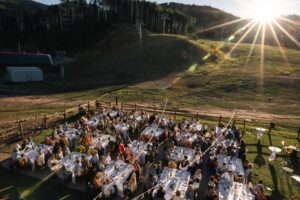Is it necessary to rinse off dirty dishes before putting them in the dishwasher to assure they are clean and bacteria-free? Resoundingly, experts say, it is not. The practice wastes water and energy; it adds dollars to our utility bills.
Many of us who continue to lightly rinse gunky dishes first may be living in the past. In the past, it was recommended to rinse excess food off dishes before loading them. I don’t think using a little more water and electricity was forefront in people’s minds.
Today energy-efficient machines use a mere four to six gallons of water to clean a load of dishes. Obviously, if we’re trying to live sustainably— to not waste ever-more limited natural resources—we need to “fill ‘er up.” What things make sense to run full loads with best results?
- Reportedly, dishwashing detergent works best when it has some food particles to stick to. Without them, soap runs off dishes and ends up down the drain. Also, today’s machines are made to work hard—to power through soiled gunky dishes. We shouldn’t let them get lazy and work with less power than they have built in.
- Getting a full load doesn’t always happen daily or even every other day. If necessary, soiled dishes can sit in the dishwasher for a few days—one source stated for a week—and come out sparkling. Here’s where a quick light rinse makes sense. Small households, rest assured. Your dishes can be cleaned after extended “sit” time.
- To all dishwasher users, you are responsible for cleaning the drain filter regularly.
Hand-washing dishes? Try this eco-friendly method: Add a bit of dishwashing detergent to a clean sink. In a container, capture the water that runs while it gets hot and use it later to rinse dishes and water plants. Add a half an index finger of water and use it to clean a meal-full of dishes rinsing no more than 3 seconds per dish. When you’re done, measure the water in the sink. How much higher on your finger does it rise? With practice, I can see I am using less water. Maybe it’s that two second rinse!
By Bev Harrison
